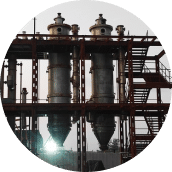
Evaporation Plants
Elevate your industrial operations with our Evaporation Plants. Engineered for optimal performance, our plants...
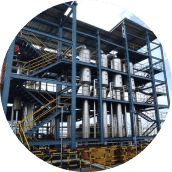
Multi Effect Evaporators
Multiple Effect Evaporators are high-performance HVAC units streamlining liquid concentration.
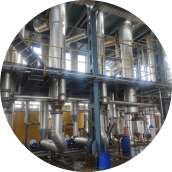
Wastewater Evaporators
Upgrade your industrial operations with our premium-grade Wastewater Evaporators. Designed for peak efficiency...
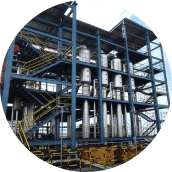
Agitated Thin Film Dryer
Film Dryers are industrial machines designed to efficiently remove moisture from thin layers of materials...
Categories
- Evaporation Plants
- Multi Effect Evaporators
- Wastewater Evaporators
- Agitated Thin Film Dryer
- Zero Liquid Discharge System
- Forced Circulation Evaporator
- Membrane Bioreactor
- Industrial Evaporators
- Zero Liquid Discharge Plant
- Wastewater treatment plant
- Effluent treatment plant
- Evaporator
- Vacuum Evaporator
- RO reject evaporator
- Effluent treatment plant manufacturer
- Vertical thin film dryer
- ATFD
- Heat Exchanger
- Multi Effect Evaporation Plant
- Multi Effect Evaporation System
Know More About Us

Agitated Thin Film Dryer
Film Dryers are industrial machines designed to efficiently remove moisture from thin layers of materials...

Our Team
It is the back of our team members that have enabled us to stand out in the market and gather a wide customers base. Based on qualification, experience, skills and knowledge, we have allocated...

Why Us?
We guarantee premium quality of our products as we manufacturer them using the best raw material and latest production technology. We practice fair set of policies that are framed keeping in mind...
About Us
Avail value for money products such as Forced Circulation Evaporation Plant, Wastewater Multi Effect Evaporators, Mechanical Vapor Recompression Mvr, etc..
Vikrama Innovative Technologies is dedicated to achieving the utmost satisfaction of our esteemed customers, recognizing that customer satisfaction is paramount for survival in the competitive market landscape. Through our unwavering commitment to quality and excellence, we have effectively positioned ourselves as a reputable manufacturer and supplier of cutting-edge products like Wastewater Evaporators, Film Dryer, Liquid Discharge System, Membrane Bioreactor, etc. Integrity is the cornerstone of our business philosophy.
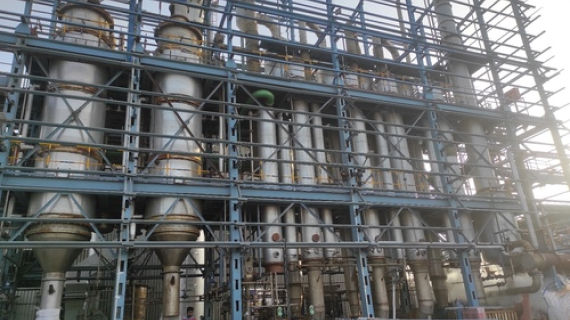
MostPopularProducts
EFFLUENT TREAMENT PLANT - TEXTILE
Product Details:
- Application ZLD
- Product Type zero liquid discharge system
- Function zero liquid discharge
- Click to View more
EFFLUENT TREAMENT PLANT - TEXTILE Price And Quantity
- 10000000 INR/Number
- 1 Unit
EFFLUENT TREAMENT PLANT - TEXTILE Product Specifications
- ZLD
- zero liquid discharge system
- zero liquid discharge
EFFLUENT TREAMENT PLANT - TEXTILE Trade Information
- 10 Unit Per Month
- 05 Days
- Yes
- Sample costs shipping and taxes has to be paid by the buyer
- All India
Product Description
This applies to industries that generate wastewater with high concentrations of organic matter (e.g. oil and grease), toxic pollutants (e.g. heavy metals, volatile organic compound) or nutrients such as ammonia. Some industries install a pre-treatment system to remove some pollutants (e.g., toxic compounds), and then discharge the partially treated wastewater to the municipal sewer system.
Wastewater treatment is a process that uses physical, chemical, and biological methods to purify water.
The process typically includes the following stages:
- Pretreatment: Screens and grinders remove bulky matter, and grit chambers remove heavier solids like dirt and sand.
- Primary treatment: Settling tanks slow the flow of water to separate solids from the wastewater. This reduces the total suspended solids (TSS), chemical oxygen demand (COD), and biological oxygen demand (BOD).
- Secondary treatment: Biological processes, like aeration and final settling, further purify the wastewater. Bacteria feed on organic matter, and the excess sludge is removed.
- Disinfection: The final step destroys any remaining pathogens.
- Sludge treatment: The waste sludge is stabilized, dewatered, and sent to landfills or used in land applications.
- Odor control: Chemicals neutralize the smell-producing elements in the wastewater.
Industrial wastewater treatment describes the processes used for treating wastewater that is produced by industries as an undesirable by-product. After treatment, the treated industrial wastewater or effluent may be reused or released to a sanitary sewer or to a surface water in the environment. Some industrial facilities generate wastewater that can be treated in sewage treatment plants. Most industrial processes, such as petroleum refineries, chemical and petrochemical plants have their own specialized facilities to treat their wastewaters so that the pollutant concentrations in the treated wastewater comply with the regulations regarding disposal of wastewaters in to sewers or into rivers, lakes or oceans. This applies to industries that generate wastewater with high concentrations of organic matter (e.g. oil and grease), toxic pollutants (e.g. heavy metals, volatile organic compound) or nutrients such as ammonia. Some industries install a pre-treatment system to remove some pollutants (e.g., toxic compounds), and then discharge the partially treated wastewater to the municipal sewer system.
Most industries produce some wastewater. Recent trends have been to minimize such production or to recycle treated wastewater within the production process. Some industries have been successful at redesigning their manufacturing processes to reduce or eliminate pollutants. Sources of industrial wastewater include battery manufacturing, chemical manufacturing, electric power plants, food industry, iron and steel industry, metal working, mines and quarries, nuclear industry, oil and gas extraction, petroleum refining and petrochemicals, pharmaceutical manufacturing, pulp and paper industry, smelters, textile mills, industrial oil contamination, water treatment and wood preserving. Treatment processes include brine treatment, solids removal (e.g. chemical precipitation, filtration), oils and grease removal, removal of biodegradable organics, removal of other organics, removal of acids and alkalis, and removal of toxic materials.
Price:
- 50
- 100
- 200
- 250
- 500
- 1000+
Other Products in 'Effluent treatment plant' category



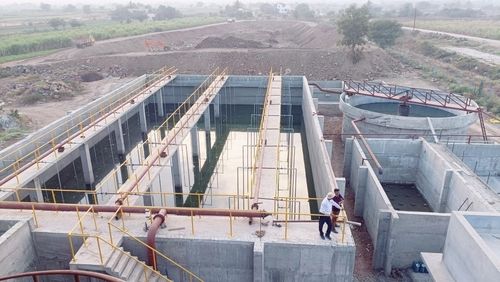

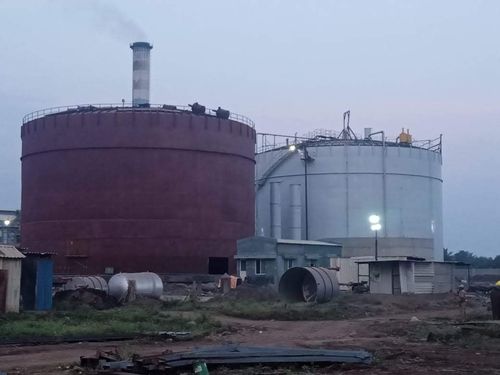
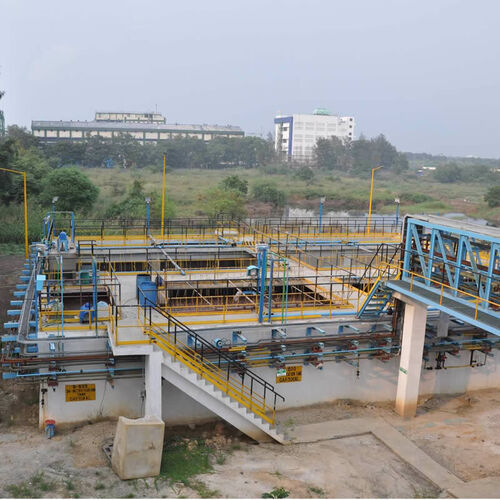

 English
English Spanish
Spanish French
French German
German Italian
Italian Chinese (Simplified)
Chinese (Simplified) Japanese
Japanese Korean
Korean Arabic
Arabic Portuguese
Portuguese